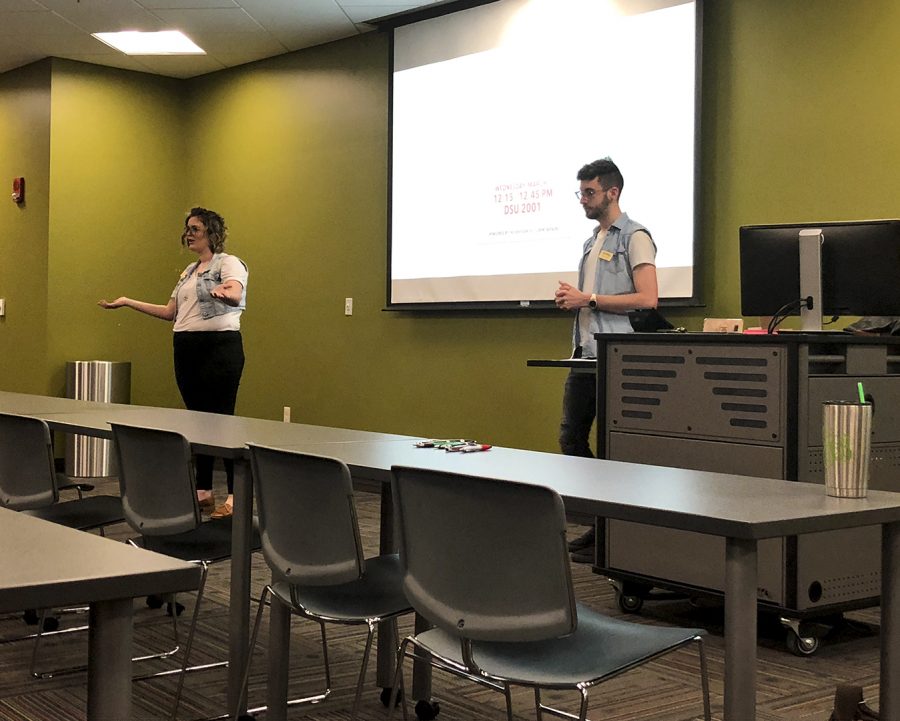Student Affairs presents ‘LGBTQIA: A is not for Allies’ seminar
March 8, 2018
The Division of Student Affairs continued their “Empower Half-Hour” series earlier today, March 7, with their presentation of “LGBTQIA: A is Not for Allies.” The seminar covered a variety of issues from identity to coming out to finding community. Presenters Nic Ditter and Kellsei Tate are both advisers to the Queer Student Union and identify within the community themselves.
They were asked to do the session as part of the “Empower Half-Hour” series, which are presented six times a semester, said Becky Tinker, associate chair of the Center for Career and Professional Development.
“We were looking for a way to reach out to campus on a variety of different topics,” Tinker said. “These ‘Empower Half-Hour’ programs were created to serve as program avenues. We also record all of them so people not in attendance can get the information as well.”
The session was open to faculty, staff, and students, with the intent of informing attendees with the best ways to be an ally to the LGBTQIA+ community, emphasizing most that the “A” in the acronym does not stand for “ally,” but that is not to say that allies are not crucial to members of the community.
“As an ally, you are not there to be the hero,” Ditter said. “They are the hero, you are there to be the sidekick and support them fully.”
The session mainly consisted of activities where attendees were put in the place of a LGBTQIA+ student. They were given a paper star with five points, each resembling a different aspect of someone’s life, ranging from closest family member to future job to a community they belonged in.
As their circumstances changed, the points would be folded or ripped off to represent strains on relationships when they came out. Each point of the star affected the next, symbolizing how one fallout in a relationship due to someone not accepting another’s identity can affect their entire development as a person.
The intent of this activity was to demonstrate how to support someone who endures life-altering circumstances from coming out. This is where the role of an “ally” comes into play.
“Just because your reality does not match their reality does not make their reality less real,” Tate said. “Be vocal in your support, be that mediator in situations and be vocal and visible with your support. Go to diversity initiatives, go to club meetings and show physical support for your friends in the community.”
Through folding paper stars, faculty and staff were subject to putting themselves in the shoes of their students in the rocky process of coming out. It also identified various ways that people react to coming out and how to deal with someone in each of those circumstances.
One attendee was Intercultural Student Engagement Center program coordinator Kristina Gamble, who runs programs connected to the WKU Pride Center under ISEC. While Gamble agrees that allies are important, she said the term “ally” is often used illegitimately.
“I think the word ‘ally’ is thrown out a lot without people being serious and committed to being one,” Gamble said. “I think that being an ally is something that you earn and requires education and dedication to the community. Sessions like this are important for educational purposes. Activities like the star activity really makes you think about how it would feel to lose people in your life and connect that to what some of our students are encountering. We need allies everywhere.”
Features reporter Noah Moore can be reached at 270-745-6291 and noah.more786@topper.wku.edu. Follow him on Twitter at @noah_moore18.















